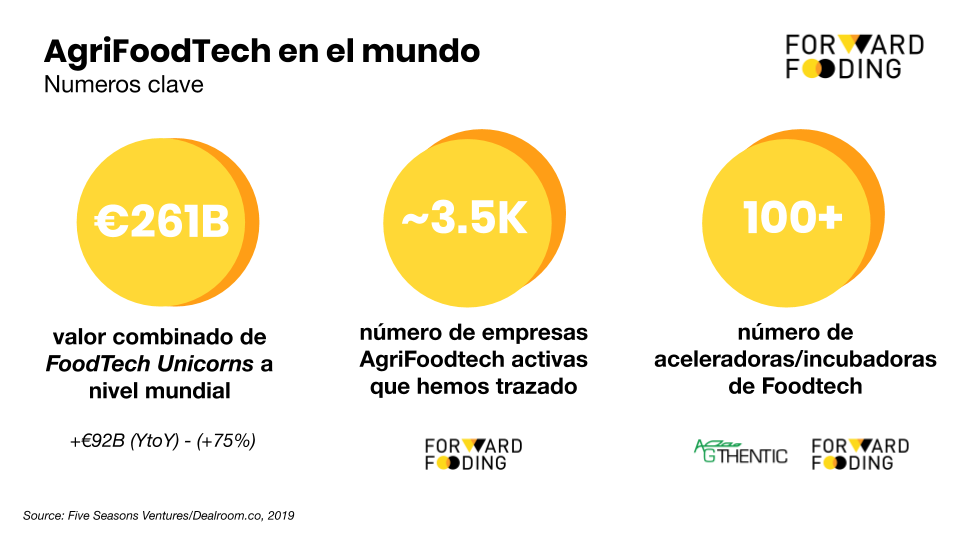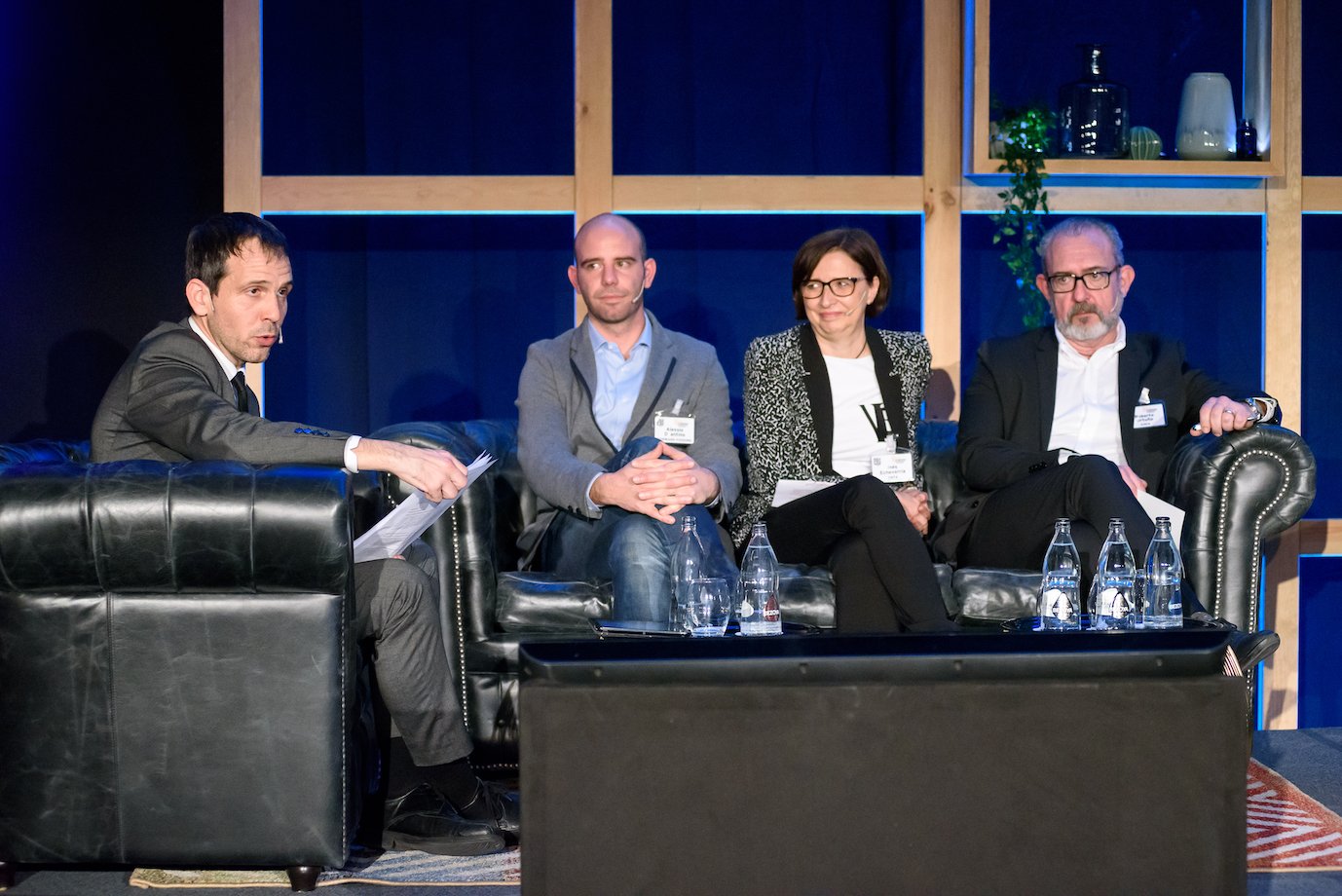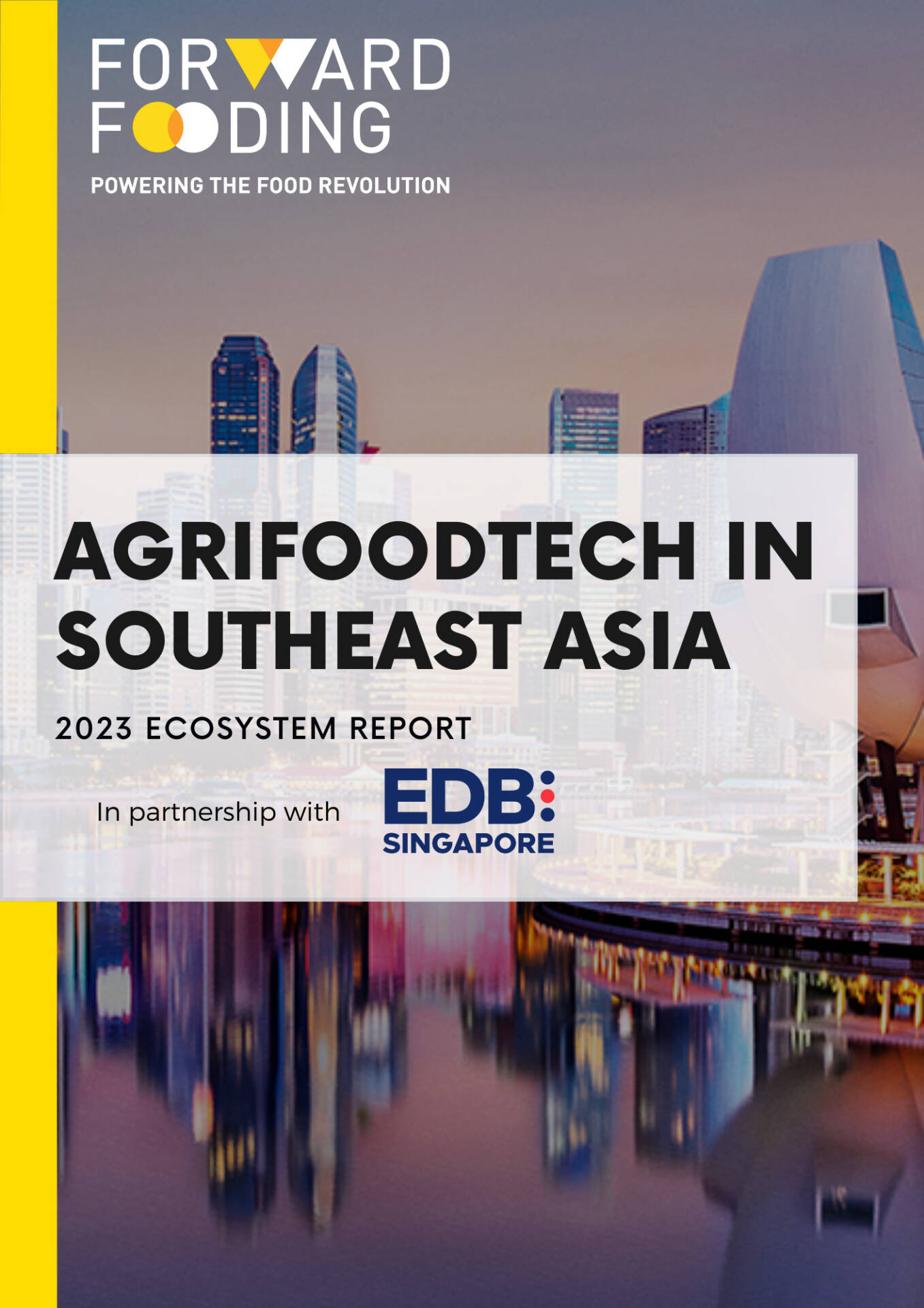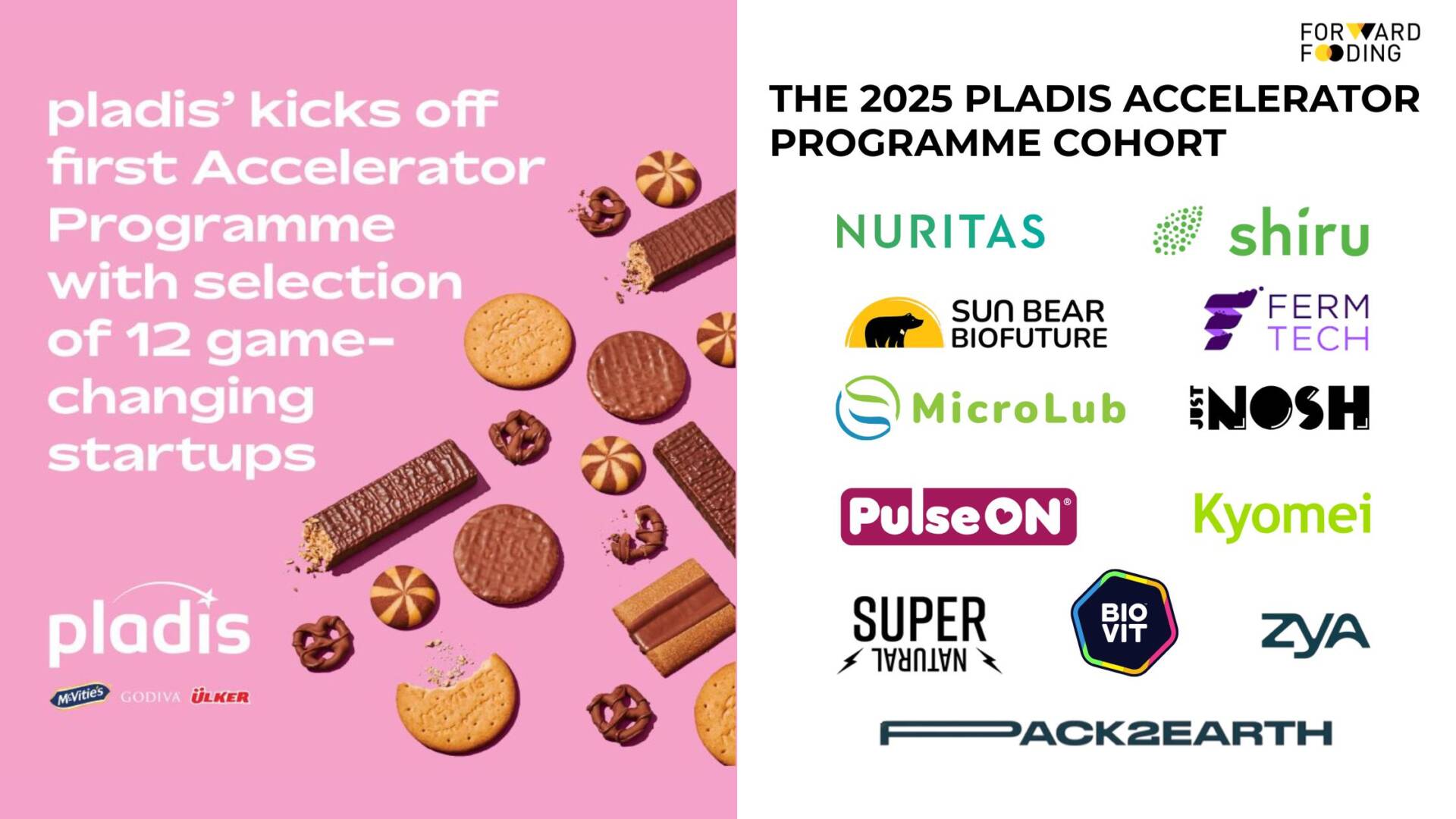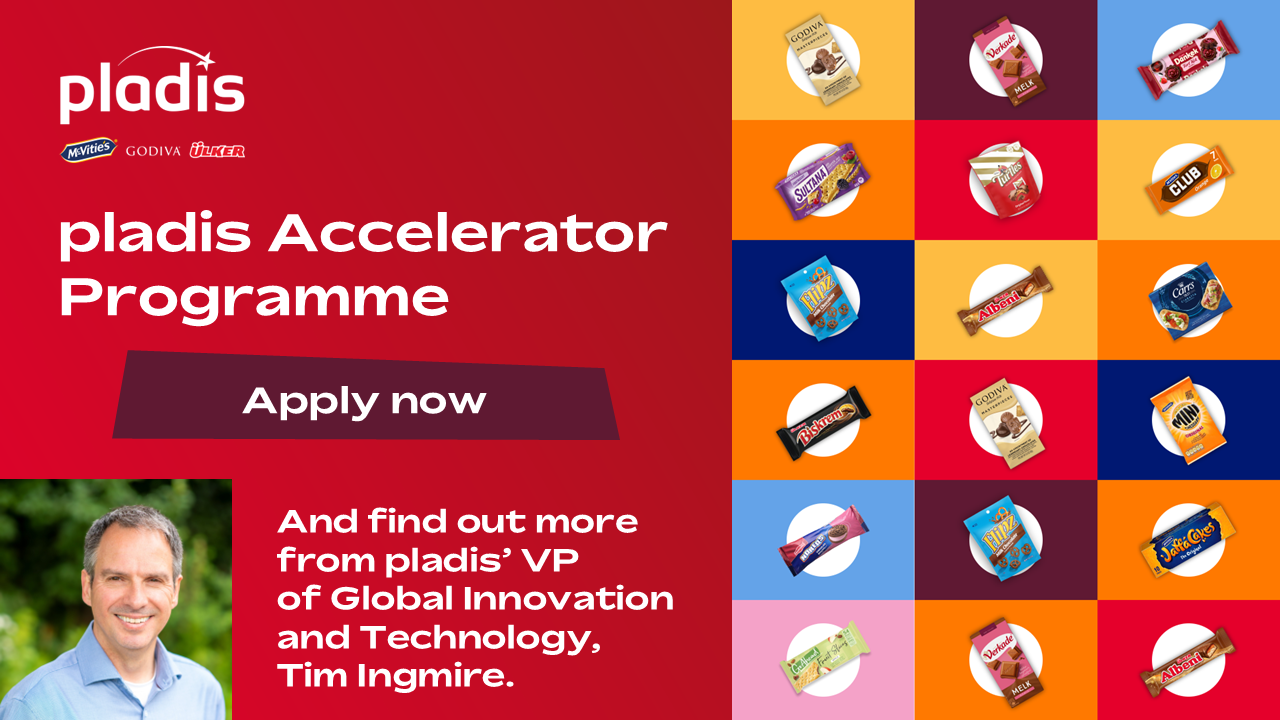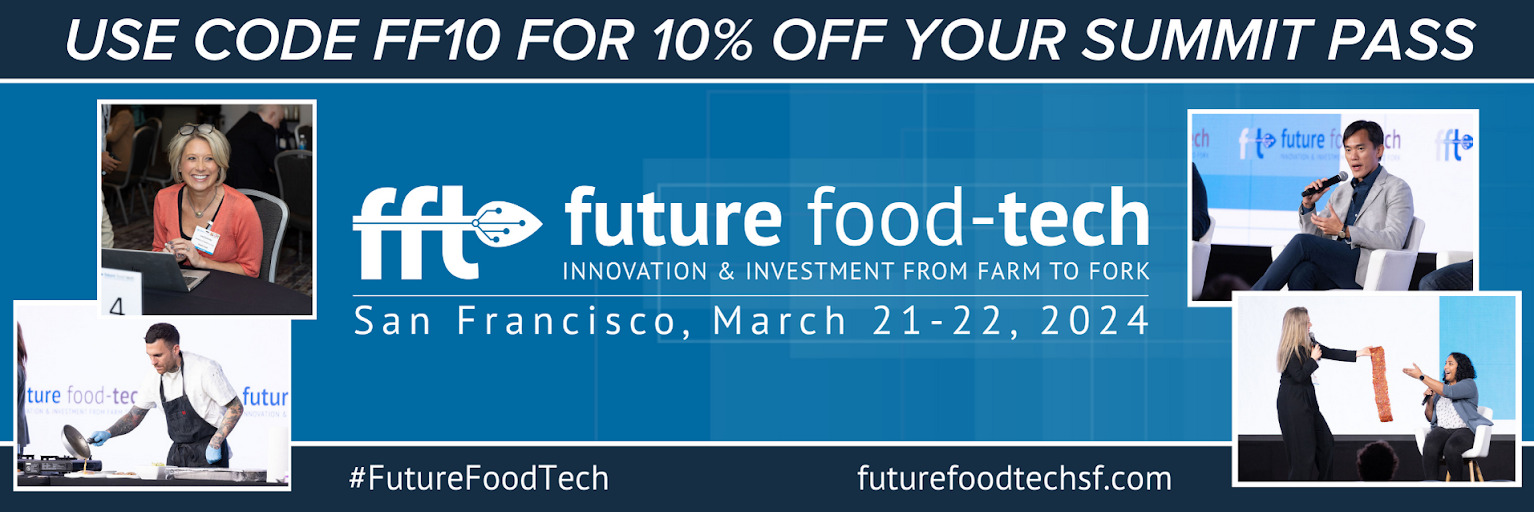FORWARD FOODING
THE BLOG
Forward Fooding at AECOC, Spain: CEO Alessio D’Antino speaks at the Food Security and Quality Congress
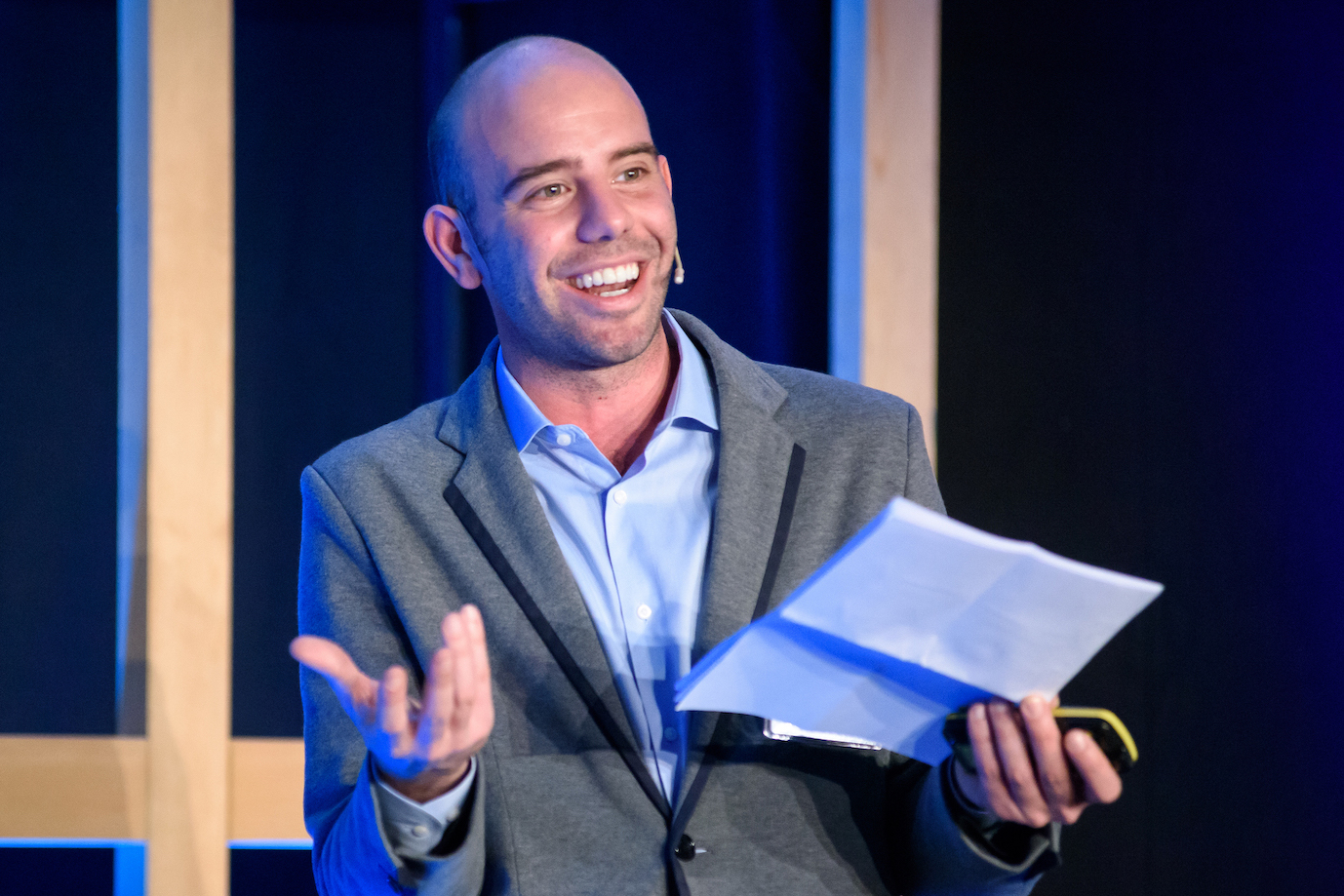
On February 18th 2020, our CEO Alessio D’Antino had the honor to be invited to the 17° edition of the AECOC congress on Food Security and Quality in Madrid, Spain.
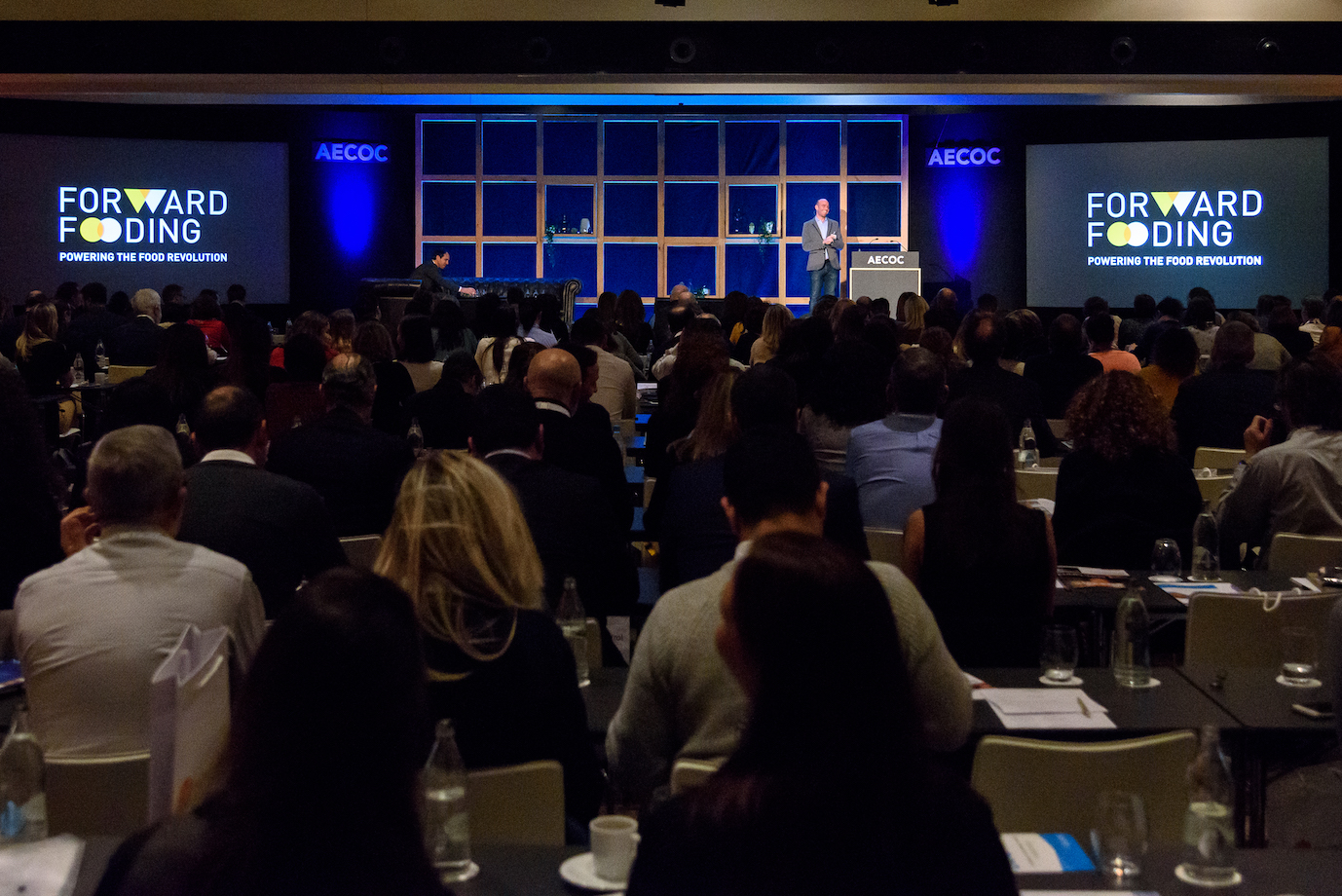
Alessio D’Antino, CEO of Forward Fooding
Forward Fooding‘s CEO was there to give a keynote speech about the latest global FoodTech Trends. There was a great crowd of about 300 participants, primarily corporate executives from different functions of the Agrifood sector.
Alessio had a big task: to give a keynote entirely in Spanish, which he’d never done before. He was beyond stoked about having this opportunity and tried his best to condense what he’d learned along his 5+ year entrepreneurial journey in the Foodtech world.
During the 17th edition of AECOC in Spain, Alessio touched on the latest Foodtech trends from the global market as well as the most interesting stories and facts around Agrifoodtech and Food Safety that he’d stumbled upon.
First, Alessio talked a bit about the different ‘green revolutions’ that our food system has undergone. After this, he presented the ‘ugly truth’ of how all these waves of industrial ‘advancements’ have led us to adopt highly intensive agriculture. This, in Alessio’s opinion, led to the death of nutritious and biodiverse food.
The Death of Food
Why did he point to the death of food for the industrial revolution? Because most traditional Agrifood companies invest very little in R&D (vs tech).
In fact, as highlighted from the graph, tech companies tend to spend an average of 13% of their turnover in R&D vs 2% of CPG.
Alessio made it clear from the beginning that he does not consider himself a food guru, nor does he have a crystal ball to predict the future.
However, he believes that the dynamics of the Agrifood sector have changed quite significantly over the past 50 years. And they will continue to do so, as most people will be living in urban areas.
In fact, according to our World Data, 7B people will be living in cities by 2050. Considering that people living in big cities today are 4.5B, this means an increase of over 50% in 30 years. Consequently, food production will have to change to be closer to where most people will be.
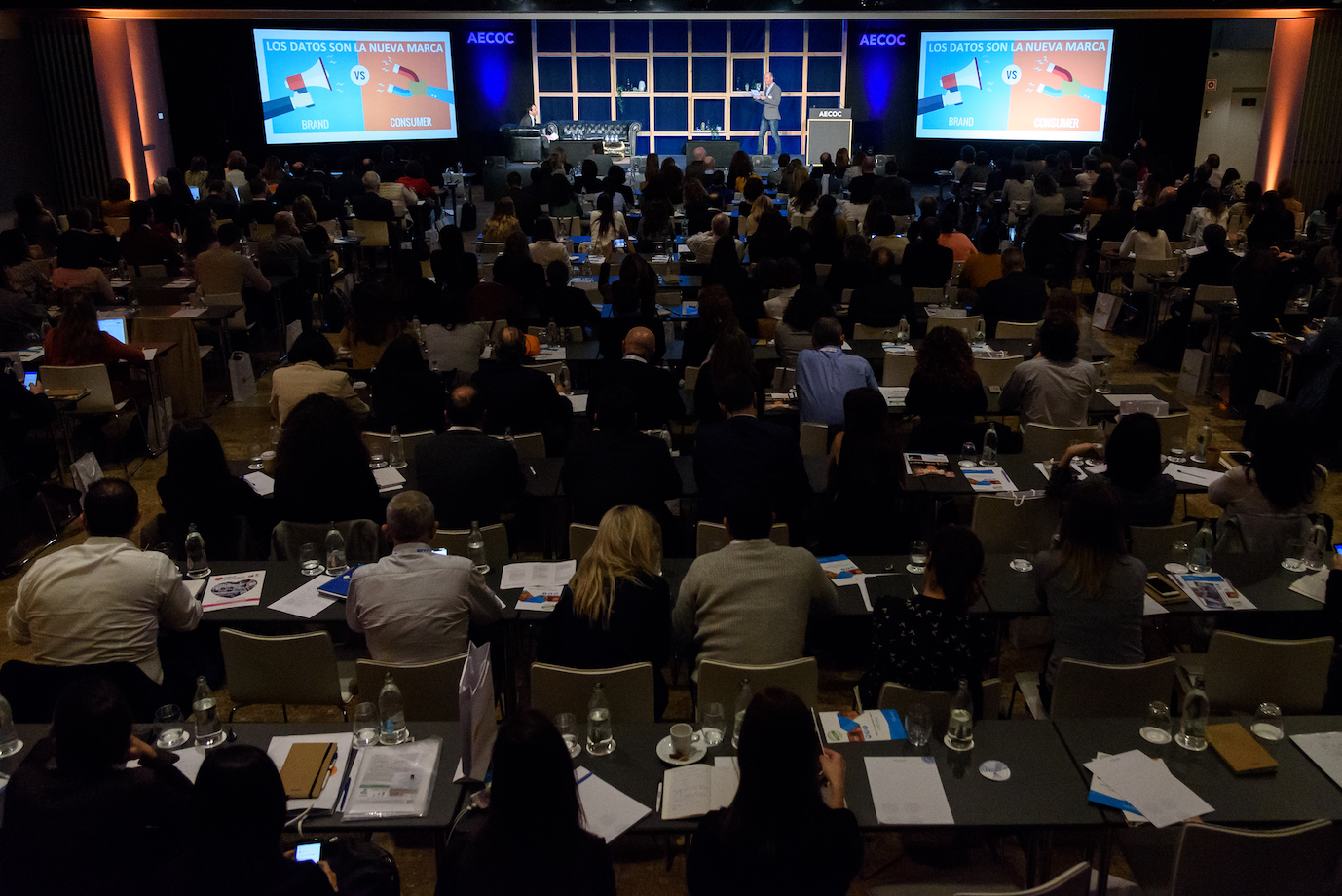
AECOC 17° Congress on Food Security and Quality, Madrid
Nonetheless, Alessio likes to look at the bright side when it comes to the future of food. And he felt blessed to share some key facts about the AgriFoodtech Revolution with the AECOC audience in Madrid, Spain.
What is FoodTech?
Before touching on the Food Revolution, Alessio clarified what the term FoodTech means to us at Forward Fooding.
Historically, people have associated the term FoodTech with the machinery deployed to process food. However, as technology has evolved dramatically over the years, defining FoodTech as a set of machines is a bit reductive. He thus proposed a more modern definition:
“FoodTech (or Agri-FoodTech) is the emergent sector exploring how technology can be leveraged to improve efficiency and sustainability in designing, producing, choosing, delivering & enjoying food.”
You can read more about Forward Fooding’s definition of FoodTech here.
Some Figures
To help the audience get a sense of the magnitude of the sector, Alessio shared the following figures:
- €261B: the combined value of FoodTech Unicorn globally (according to Five Seasons Venture 2019 report)
- 3.500+ : the number of active companies that Forward Fooding has up to now mapped out (source: Foodtech Data Navigator)
- 100+ : the number of international accelerators and incubators specifically serving Foodtech companies.
The FoodTech Data Navigator
Moreover, Alessio shared that the data he presented came from the FoodTech Data Navigator.
This is the world’s first data intelligence platform for the AgriFoodTech Ecosystem as well as Forward Fooding’s internal database.
We use this tool to make sense of the AgriFoodTech ecosystem globally, and it now captures more than 5000+ actors including startup and scaleup companies, accelerators, VC funds, and Corporate Venture arms. We also use it to stay on top of the latest developments that are happening at the ecosystem level as we feed news about all those actors.
3 Key Clusters
Alessio then showed the audience at AECOC Spain the key trends we are seeing in AgriFoodTech, as far as innovation from startup companies is concerned.
As a matter of fact, he presented the 3 key clusters we have identified using our FoodTech data intelligence.
He expanded on each cluster by providing examples of what we call ‘signals of disruption’. These are the ‘warning signs’ that a breakthrough change might be on the horizon.
Farming & Big Data: Minimize Risk & Optimize Crops
Below are some examples from this first cluster.
AEROFARMS (#1 on FoodTech 500) has developed hydroponic systems to grow leafy vegetables at high yield densities on urban vertical farms. They have raised over $150 million to build multiple farms like this without using any soil.
HUMMINGBIRD uses remote sensing systems to collect data from satellites, aircraft, drones, and robots about crops in the field. It also provides exportable data files on agricultural equipment within twenty-four hours – thus helping farmers to make decisions with data at hand.
SMALL ROBOT COMPANY (#76 on FoodTech 500) is building autonomous robots that will plant and care for each individual plant in their crop. The robots only feed and spray the plants that need it, giving them nutrients without any waste. By doing this, The Small Robot Company has developed a business model called ‘Farming as a service’, which allows farmers to rent the robots and only pay when they use them.
Reinventing Protein: From Plant-based to Air
Here are a few companies that have developed interesting solutions for this sector.
JUST uses technology to mimic eggs with plant protein. They have built a discovery platform that recreates the gene for animal proteins (eg, eggs or chicken) using a catalog of 300,000 plant species.
FOODS FOR TOMORROW (#59 on FoodTech 500) has developed a patented extrusion process to create protein concentrate extracted from soybeans. This allows to obtain a meaty texture similar to chicken, from plants!
SOLAR FOODS (#121 on FoodTech 500) makes high protein ingredients from CO2 and water captured from the air. They do this through a patented fermentation process. The process is 10 times more efficient than soy production on land, and long-term expenses are equal to soy production.
Reducing Food Waste: Upcycling Food & Waste Management Technology
Below are two companies that have built disruptive technologies in this sector.
MIMICA (#84 on FoodTech 500) is developing a biologically accurate smart packaging solution that reduces food waste and improves food safety. Their transparent film is applied to food packaging, and when food reaches its expiry date, Mimica’s film starts a chemical process and marks ‘micro bumps’ on the packaging. Mimica designed this system for visually-impaired people to easily recognise when their food is out of date, by the touch.
NOTPLA (#6 on FoodTech 500) is a revolutionary material made from seaweed and plants. It biodegrades in weeks, naturally. This London-based start-up uses this innovative material as an alternative to single-use plastic in food and drinks packaging.
Working Together is the Key
After talking about these companies, Alessio shared some other examples of companies innovating through technology from farm to gut.
We could debate for hours around how sustainable, economically viable or even scalable these solutions are. However, we think it is important to highlight that these companies have one thing in common: they are purpose-led businesses.
In Alessio’s humble opinion, working with these companies and understanding all these social phenomena and trends is key to anticipate trends and prepare to innovate. Alessio believes that these entrepreneurs represent invaluable access to talent for large companies. And, as any considerate business person will agree, great businesses often start with great talent.
Conclusion
Alessio closed his speech at AECOC, Spain by saying that although he wished to have a ‘secret recipe’ to share with the audience on how to effectively work with startups, there is, unfortunately, no ‘one-size-fits-all’ magic model. In fact, that usually very much varies from company to company. It also depends on companies’ purpose, management’s motivations and most and foremost the people they put on the ground.
However, he did share one piece of advice: try and be a bit of a ‘corporate pirate’ every day. He encouraged the corporate executives in the room to open themselves and their businesses to work with entrepreneurs towards a common goal. They will be surprised about the power of collaboration when working towards something meaningful and purposeful.
Finally, Alessio encouraged the audience to find those colleagues who are seeking purpose and invite them to embrace the ‘less-known’ by joining their meetings with startups. After all, they don’t have much to lose. Worst-case scenario, they’ll be better equipped to anticipate or better understand what the future holds for their kids.

Alessio D’Antino, CEO of Forward Fooding, speaks at the 17° AECOC congress in Madrid
After Alessio speech, followed a roundtable. This featured other Food Innovation experts from academia, research centers, and the entrepreneurial world.
Thank you!
A big thank you to AECOC, Spain for giving Forward Fooding the opportunity to share some of our work and we look forward to supporting AECOC with their efforts of bringing together the innovators of this sector.
Follow us
Sponsored Articles
9 July 2025
Forward Fooding celebrates the selection of 12 pioneering startups for the inaugural pladis Accelerator Programme. From water lily popcorn to sugar-converting enzymes, these innovations represent the future of snacking, addressing obesity, sustainability, and personalized nutrition through cutting-edge food technology.
21 March 2025
Tim Ingmire, VP of Global Innovation & Technology at pladis, discusses how the snacking giant is supporting early-stage startups in foodtech, health, and sustainability through their accelerator program. Learn about their focus on personalized nutrition, functional foods, and future ingredients to bring innovative, delicious products to consumers worldwide.
8 February 2024
Future Food-Tech returns to San Francisco on March 21-22 Over 1,700 food-tech leaders, from CPG brands, retailers, ingredient providers, [...]
1 February 2023
The 4th edition of FoodTech 500 is taking off and we are excited to partner with NEOM for the third consecutive year to support the best international AgriFoodTech entrepreneurs.
10 February 2022
One of the elements we enjoy the most here at Forward Fooding about working with AgriFoodTech startups is being [...]

